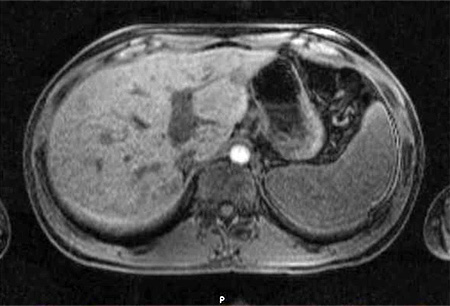Summary
Definition
History and exam
Key diagnostic factors
- fever
- skin manifestations (cat-scratch disease [CSD])
- lymphadenopathy (CSD, Oroya fever)
- episodic abdominal pain (CSD)
- headache, post-orbital (trench fever)
- maculopapular rash (trench fever)
- nodular skin lesions (verruga peruana, Peruvian wart)
Other diagnostic factors
- gastrointestinal symptoms
- bone and joint pain (trench fever)
- severe pallor (Oroya fever)
- hepatosplenomegaly (Oroya fever)
- dyspnea, heart murmur, and signs of cardiac failure (CSD, trench fever)
- mental state changes (CSD, Oroya fever)
- nuchal rigidity (CSD)
- red eye (CSD, trench fever)
- painless visual loss, with unilateral, abrupt onset (CSD)
- bone pain (CSD)
- mastoiditis (CSD)
- Janeway lesions, Osler nodes, or splinter hemorrhages (CSD, trench fever)
- chest pain
- photophobia
- gastrointestinal bleeding
Risk factors
- cat scratches and bites
- exposure to arthropod vectors
- homelessness or poor living conditions
- history of cardiac valvular disease
- immunosuppression
Diagnostic tests
1st tests to order
- serology: Bartonella henselae (cat-scratch disease [CSD])
- culture: B henselae (CSD)
- aspiration or biopsy of lymph nodes (CSD)
- serology: B quintana (trench fever)
- culture: Bartonella quintana (trench fever)
- blood smear (Carrion disease)
- culture: Bartonella bacilliformis (Carrion disease)
- serology: B bacilliformis (Carrion disease)
- culture: B vinsonii
- immunofluorescence antibody (IFA) assay: B vinsonii
- polymerase chain reaction (PCR) assay: B vinsonii
Tests to consider
- PCR: B henselae (CSD)
- tuberculin skin testing (TST)
- interferon-gamma release assays (IGRA)
- PCR: B quintana (trench fever)
- tissue biopsy (trench fever)
- tissue biopsy (Carrion disease)
- echocardiogram
- CT abdomen
- lumbar puncture with cerebrospinal fluid (CSF) analysis
- bone scan
Treatment algorithm
suspected Bartonella endocarditis
cat-scratch disease: no endocarditis, hepatic involvement or bacillary angiomatosis
trench fever: no endocarditis or bacillary angiomatosis
bacillary angiomatosis
peliosis hepatis or hepatosplenic microabscesses
confirmed Bartonella endocarditis
Carrion disease: Oroya fever
Carrion disease: verruga peruana
Bartonella vinsonii infection
Contributors
Authors
Janak Koirala, MD, MPH, FACP, FIDSA

Professor Emeritus of Medicine
Division of Infectious Diseases
Southern Illinois University School of Medicine
Springfield
IL
Disclosures
JK declares that he has no competing interests.
Vidya Sunadareshan, MD, MPH
Professor of Medicine
Chair, Division of Infectious Diseases
Southern Illinois University School of Medicine
Springfield
IL
Disclosures
VS declares that she has no competing interests.
Sangita Basnet, MD, FAAP
Professor of Pediatrics
Department of Pediatrics
Southern Illinois University School of Medicine
Springfield
IL
Disclosures
SB declares that she has no competing interests.
Peer reviewers
Russell Wesley Steele, MD
Professor of Pediatrics and Infectious Diseases
Tulane University School of Medicine
New Orleans
LA
Disclosures
RWS declares that he has no competing interests.
Miguel G. Madariaga, MD, MSc
Infectious Diseases Consultant
Naples Community Hospital
Naples
FL
Disclosures
MGM declares that he has no competing interests.
Katarina Westling, MD, PhD
Division of Infectious Diseases
Karolinska University Hospital
Huddinge
Stockholm
Sweden
Disclosures
KW declares that she has no competing interests.
Peer reviewer acknowledgements
BMJ Best Practice topics are updated on a rolling basis in line with developments in evidence and guidance. The peer reviewers listed here have reviewed the content at least once during the history of the topic.
Disclosures
Peer reviewer affiliations and disclosures pertain to the time of the review.
References
Key articles
Maguina C, Gotuzzo E. Bartonellosis. New and old. Infect Dis Clin North Am. 2000 Mar;14(1):1-22;vii. Abstract
Rolain JM, Brouqui P, Koehler JE, et al. Recommendations for treatment of human infections caused by Bartonella species. Antimicrob Agents Chemother. 2004 Jun;48(6):1921-33.Full text Abstract
Florin TA, Zaoutis TE, Zaoutis LB. Beyond cat scratch disease: widening spectrum of Bartonella henselae infection. Pediatrics. 2008 May;121(5):e1413-25. Abstract
Centers for Disease Control and Prevention. Bartonella infection. Jan 2022 [internet publication].Full text
Prutsky G, Domecq JP, Mori L, et al. Treatment outcomes of human bartonellosis: a systematic review and meta-analysis. Int J Infect Dis. 2013 Oct;17(10):e811-9.Full text Abstract
Reference articles
A full list of sources referenced in this topic is available to users with access to all of BMJ Best Practice.

Differentials
- Bacterial adenitis
- Infectious mononucleosis
- Cytomegalovirus infection
More DifferentialsGuidelines
- CDC health information for international travel (yellow book): Bartonella infections
- Guidelines for the prevention and treatment of opportunistic infections in adults and adolescents with HIV: bartonellosis
More GuidelinesLog in or subscribe to access all of BMJ Best Practice
Use of this content is subject to our disclaimer